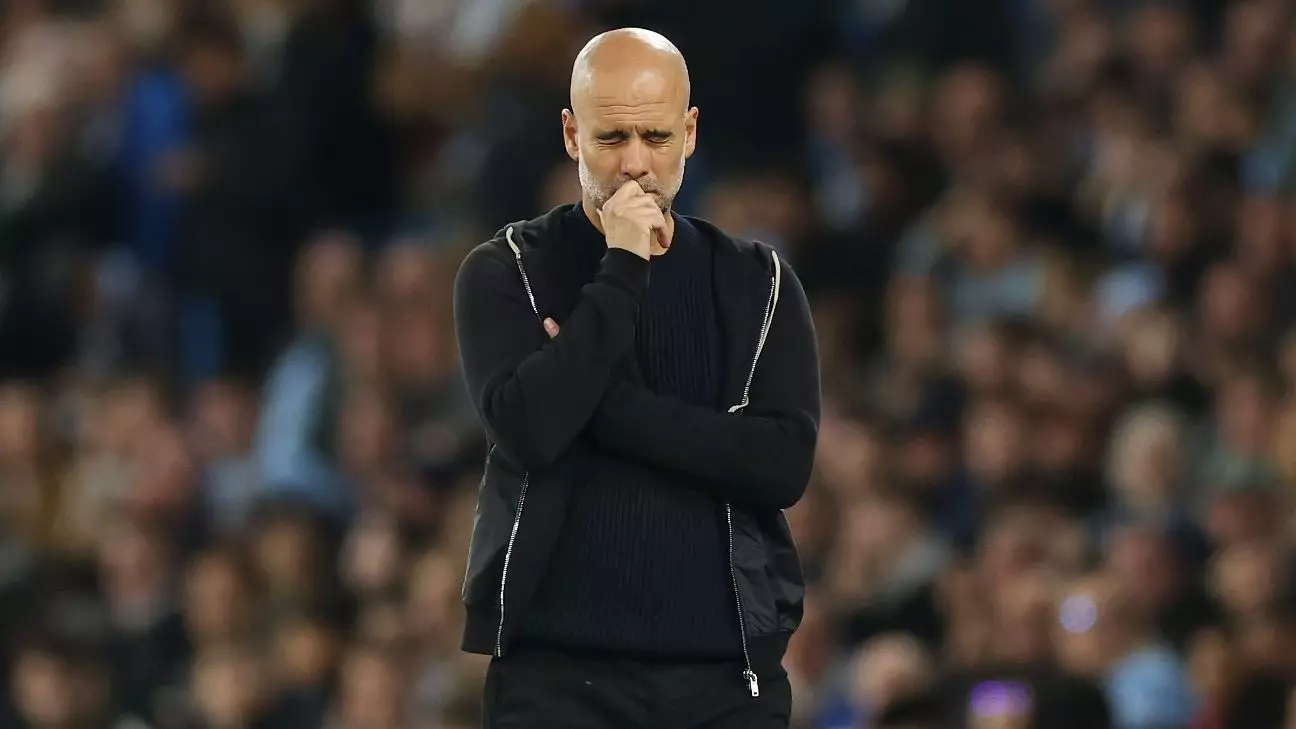Pep Guardiola, the mastermind behind Manchester City’s ascendancy in English football, has faced a reality check this season amidst a turbulent campaign. The manager openly dismissed the idea that a Champions League qualification could salvage what he describes as a “bad” season. While Manchester City secured a crucial 2-1 victory over Aston Villa, thanks to a last-gasp goal from Matheus Nunes, Guardiola’s perspective reveals a much deeper dissatisfaction. Underneath the surface of this rollercoaster season lies a sobering truth: for a team accustomed to winning, merely scraping into the Champions League is not enough.
In Guardiola’s eyes, success is not measured by cup runs or European appearances but by the relentless grind of the Premier League—a league he acknowledges as extraordinarily competitive. “The reality is that what determines… the season is good is the Premier League,” he reiterated, emphasizing the weight of consistency in domestic competition. This insistence illustrates the lofty benchmarks set by a manager who has redefined success in English football, making his displeasure not just valid but essential in understanding the ethos of Manchester City.
Unraveling Instincts
Despite the recent victory that elevated City to third place in the league table, there lingers an overwhelming sense of disillusionment regarding their title defense. An 18-point chasm separates Guardiola’s side from the league leaders, Liverpool—a stark reminder that at the core of their ambitions lies an unsatisfied hunger for greatness. The expectation was to secure a historic fifth consecutive title; instead, a ripple effect of inconsistencies has transformed aspirations into mere survival.
The manager’s reflection on the season acknowledges that sometimes, despite the best-laid plans, outcomes do not align with intentions. “It happens, sometimes you have bad seasons,” Guardiola remarked. This admission points to the reality that great teams—despite their quality—must navigate the unpredictable nature of competitive sports. Yet, this doesn’t squash Premier League fervor; rather, it amplifies the urgency of their current situation. Navigating through the remaining matches will be a test of resolve, wherein winning every game becomes imperative.
Pressure and the Battle for Relevance
Winning against Aston Villa brought a momentary high for Guardiola after a long stretch of frustrating performances. His jubilant celebration following Nunes’s late goal painted a picture of urgency mixed with relief. “I was so happy. I have to admit it,” he confessed, encapsulating a moment that transcended mere victory. The fleeting joy of the triumph served as a reminder of the pressure currently resting on the shoulders of City and its manager, highlighting how pivotal this season’s upcoming matches will be for both City’s reputation and its Champions League aspirations.
Guardiola openly acknowledged the pressure from the club to secure a spot in next season’s Champions League, revealing just how critical these next few games are for the psyche of the team. With so much riding on their performance, any slip-up could significantly alter their trajectory and threaten to inhibit City’s brand as a perennial powerhouse in European football.
As the club’s campaign aligns with a seemingly crowded space in the league, it will face heightened tensions exacerbated by the fierce competition for a Champions League place. With only four points separating teams from third to seventh, each match becomes a crucial battle, effectively making every point irretrievable towards the season’s countdown.
Clashing Ambitions
On the opposite end, Aston Villa faces its own crossroads as it strives for consecutive Champions League qualifications under the leadership of Unai Emery. The competitiveness of the Premier League reveals the stark contrast between ambition and reality: while Guardiola sulks over unmet expectations, Emery aims for redemption after a historic return to the Champions League. “Of course, today we lost, but there are still matches to play,” he stated, encapsulating an optimism that can easily be overshadowed by the harsh outcomes of the league.
This dynamic paints a broader picture of English football—where aspirations collide, ambitions are challenged, and managers navigate vast emotional landscapes amid their seasons. So while Manchester City fights to reconcile its current state with past glories, Aston Villa is determined to carve its own place in a competitive landscape, highlighting the ever-shifting nature of prestige and success in football.

